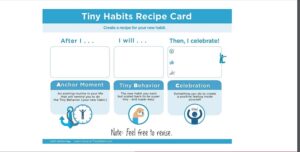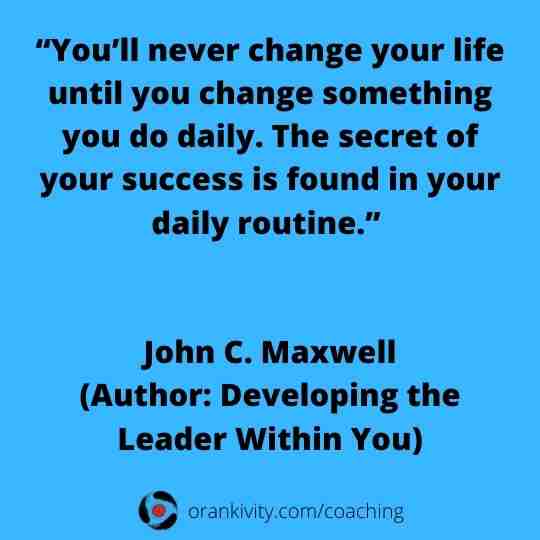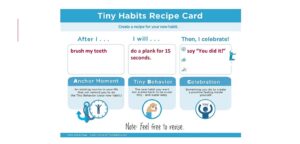I’ve been posting a lot about habits recently. So much of what we are and what we achieve is rooted in our habits. Our habits help us or hinder us from achieving our goals. Here’s an obvious example: If I spend fifteen minutes a day practising rolling moxa cones, then after five days, I’ll be better at rolling moxa cones than if I didn’t. Of course, that’s not rocket science; it’s just common sense!
But the beauty of habit change is that when people change keystone habits, the effects resonate throughout their life. In my case, the desire to write my first book without distractions led me to wake up much earlier than ever before, and that became a new habit that has had multiple benefits in my life. Even my identity has changed as a result. I no longer think of myself as a night owl; I’m that previously dreaded creature, a morning person! That’s an amazing thing about habits. Not only do they help create our future outcomes, but they also create our sense of identity.
The secret of a successful new habit
Here’s the secret to creating a successful new habit. Spoiler alert. Start small! When you start small, with a tiny, achievable habit, you create momentum that leads you to greater changes. A series of small successes creates momentum, and that momentum grows until it becomes your new normal.
Your five-day tiny habit challenge
Here’s a tiny habit challenge. Can you spare thirty seconds a day for five days? I invite you to set up one small new habit change to do every day. It should take you no more than thirty seconds. I’ve listed five options below as examples. Feel free to choose one of mine, adapt one to your own circumstances or set your own challenge (choose something that takes no more than thirty seconds).
- The Maui Habit – Every morning after you wake up, I’m guessing you sit up and put both feet on the floor before standing up. At that moment, when your feet touch the floor, pause and say to yourself, “It’s going to be a great day”. Try and feel optimistic when you say it.
- If you’re a practitioner like me, then every day in the clinic, before you greet your first patient, say to yourself, “Today, I’m going to be focused and calm”. Take a deep breath afterwards and relax as you breathe out.
- Every day you’re in clinic, before you start with the first patient, set an intention for the day, and write it down on a piece of paper which you keep on your desk for the whole day, for example, “Today I’m going to focus on reading the pulse better”. If you’re not a practitioner, write down your intention with the first drink of your morning.
- Another one for people who do moxa. Every day you’re in clinic, before you start with your first patient, roll one perfect moxa cone and place it on your desk.
- This is a variation of 4. Every day, at the start of the day, do one small thing to the best of your ability: make the bed perfectly, make a cup of coffee as mindfully as you can, fold your towel perfectly, or brush your teeth with absolute attention. Just one small, easy task, done with all your attention.
Cues and prompts.
The key to success is to put the new habit in sequence with something you already do routinely. In the first option above, make an affirmation when you wake up and sit up. Or when you get out the notes for your first patient, add your affirmation, set your intention or roll your perfect moxa cone. Use something you already do daily as the trigger for the new habit. Eventually, you can chain whole sequences of tiny habits together to create powerful routines that can change your life for the better.
Rewards
Here’s the best part. This bit is easy for some and hard for others. Every time you successfully perform your new habit, say something nice to yourself. What? Why would you do that? Because saying something nice to yourself constitutes a reward, and rewards are the best way to bed down and consolidate a new habit.
What kind of things could you say? Well, what nice things do you say to kids? Or colleagues? I say, “Good job!” “Well done!” “Yay!” To myself, I say, “Good job, Oran!” or sometimes, I mimic Aslan from the Narnia books saying “, Well done, Son of Adam!” (OK, a bit weird, but those books meant a lot to me as a kid and it works). Anything affirmative goes, including a fist bump or a simple thumbs up to yourself.
Summing up
Think of a new habit you want. Shrink it down and make it tiny, tiny, tiny and achievable. Laughably easy. Pair it with an existing habit, so doing the thing you always do becomes the cue for the new thing you want to do. Finally, pat yourself on the head every time you do it. Well done, you!
THE CHALLENGE

If you’re up for the challenge, here’s a formula. What BJ Fogg calls a habit design recipe. Figure out your cue or prompt. Write it down in the first box. Then write down your tiny habit in the second box. and then, Sons of Adam and Daughters of Eve, write down the nice thing you’re going to say to yourself. Feel free to share your recipe in the comments below this post. I’d love to see it.
If you’d like to know more about habits, check out these brilliant books:
The Power of Habit – by Charles Duhigg
Tiny Habits – by B.J. Fogg
Atomic Habits – by James Clear
sign up for NEWS AND updates
Book a free Get-to-know-you call

